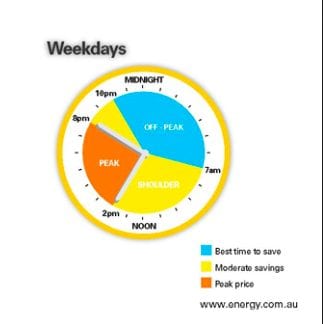This is the third of a three-part article which explores the existential threats being faced by electricity utilities and how they should address these threats by embracing new technologies and by putting the customer first. (The first article can be seen here, and the second here).
I suggested in the first article that utilities need to stop looking at their customers as merely electricity consumers, but should also see them as potential electricity prosumers. By making this leap, utilities will be able to pivot their businesses and shift from being electricity distributors to being energy enablers. As energy enablers, they must consider a whole new host of product offerings and, critically, start thinking about what services they can provide behind the meter.
In this article I’ll look at how pricing (and business models), promotion, people, and processes will be critical to the success of the utilities’ new business-positioning and product offerings.
Pricing – it is time to stop talking about tariff structures
 Utilities are at real risk of backing themselves into a corner by focusing their efforts on designing more elaborate tariff structures that strengthen their grid-based position.
Utilities are at real risk of backing themselves into a corner by focusing their efforts on designing more elaborate tariff structures that strengthen their grid-based position.
This has to end quickly. If not, solar and battery technology will eventually get the better of utilities by driving energy users to defect from the grid and become self-sufficient. In this case, users will likely accept the risk of lower power reliability to provide themselves with a more economically sustainable position.
Utilities need to shift the conversation to look at the total value proposition for customers. That is, rather than looking to sell more electricity at a cent-per-kilowatt rate, utilities should consider the customer’s total bill and the value the customer derives from it. This allows for utilities to consider carefully driving up the price of grid power but with the expectation that they will sell a lot less.
In the place of the revenue they gain from supplying electricity via the grid, utilities now need to consider service fee structures for providing battery storage services and mini-markets where customers can sell power to their neighbours and other consumers. As an example, if utilities go into the business of owning and leasing e-Car batteries, they could potentially bill customers based on the kilometres they travel rather than straight kilowatt-hour consumption.
Unquestionably, regulation changes are required to support these proposals, but utilities can use their existing strong relationships with regulators to create a supportive regulatory environment. If they take a defensive position against renewable energy (and hence their customers), they put their relationship with regulators at real risk.
Promotion – marketing is too important be left to the marketing department
Promotion is a key lever for utilities of the future. The energy bill should no longer be principal point of interaction between utilities and their consumers.
Firstly, the utility of the future will need to be on the offensive with their promotional activities. They need to win the hearts and minds of their customers, regulators and employees. Utilities will upset the status quo in ways that that will create themselves some powerful new enemies, especially from incumbent generators.
Secondly, utilities need to explain to their customers the benefits of their new services and how they benefit prosumers. To support this, utilities should leverage social media, web and mobile applications to build their relationship with their customers. This is where utilities need to think creatively about ways that customers can engage with them in easy, interesting and profitable ways.
People & Processes – building the skills of the utility of the future
Commonly forgotten in the strategic marketing planning are people and processes. These are usually left to management teams to figure out. But for utilities to be successful they need to be very proactive in these areas.
Utilities currently lack skills in building relationships with their customers and in managing projects that directly involve their customers. This weakness needs to be addressed from the outset. Utilities need to change their corporate culture in ways that support their new vision by building teams of customer-focused employees.
Furthermore, utilities will need to think carefully about what are to become the core aspects of their business, and what aspects they will outsource. A dissection of the business processes and how to apply their existing skill base will help in this understanding. It is certain that utilities will need to build new relationships with partners that help them build their businesses and deliver their new offerings.
In summary – the window of opportunity is now
Overall, utilities need to think very quickly about their future. Many utilities are heading down a dangerous path in advocating draconian, protectionist regulation that is ultimately doomed. They risk destroying their relationships with their customers and will ultimately come off second best when energy market regulation is reconsidered.
Outlined above is how utilities can avoid catastrophe, by becoming more customer focused and by providing services and solutions which empower their customers and which, in the process, build a cleaner future.
James Allston, an Australian, is the Strategic Marketing Manager for Energy & Environmental Services at Siemens AG in Germany, and a co-founder and former Vice-President of the Energy Efficiency Council in Australia. He is a specialist in strategically marketing and developing businesses that create a sustainable energy future. His views are his own and not representative of Siemens AG or its subsidiaries.
Please click on our Insight link to see all the articles.






